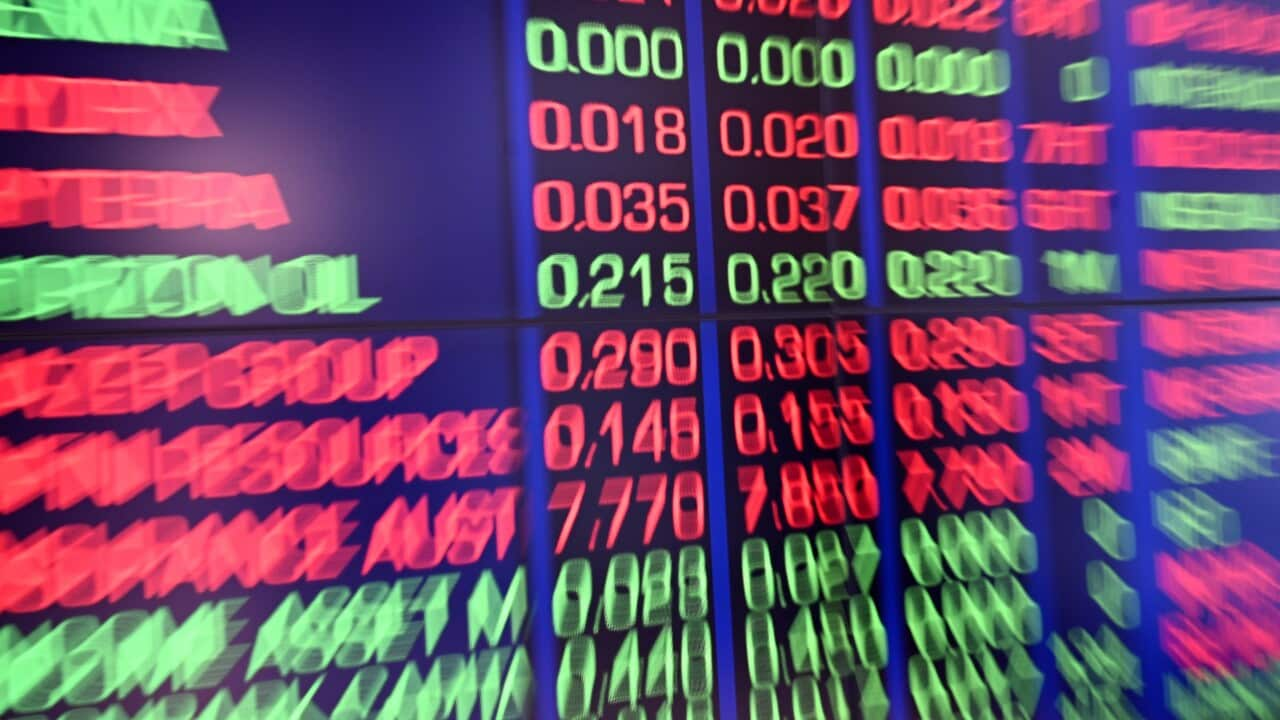The Australian share market has taken its biggest hit in over a year, with the top 200 companies' values plunging more than 6 per cent in the first few minutes of trade.
The S&P/ASX200 index dropped 463.50 points or 6.04 per cent to 7,204.30, around 20 minutes after the opening of trade on Monday morning, a new 100-day low.
The broader All Ordinaries index fell 464.7 points, or 5.92 per cent, to 7,388.8, wiping more than $155 billion of the $2.6 trillion market value.
As final transactions were settled the S&P/ASX200 was down 321.2 points , or 4.19 per cent, to 7,346.6, while the broader All Ordinaries had given up 321.2 points, or 4.09 per cent, to 7,526.4.
It was the local bourse's worst daily performance since March 2020, when declaration of the COVID-19 pandemic prompted panic-selling and major volatility.
All sectors closed deep into the red, led by a 6.7 per cent bloodbath in energy stocks, along with a more than 4.7 per cent losses in financials and materials.
It comes amid fears of a recession — with financial services company JP Morgan hiking its odds of a recession in the United States to 60 per cent after the Trump administration imposed tariffs on dozens of countries last week, and China retaliated with its own levies on American goods.
Trillions of dollars have been wiped off stocks worldwide since Trump announced the tariffs last week, and the losses deepened on Monday.
Taipei recorded its heaviest loss on record as it sank 9.7 per cent.
In Europe, Frankfurt's DAX sank as much as 10 per cent in early deals before paring back losses.
The German index and Paris were down over six percent in late morning deals, while London fell 4.5 per cent.
Hong Kong's Hang Seng index sank 13.2 per cent, its biggest drop since the 1997 Asian financial crisis, while Tokyo's Nikkei 225 fell an eye-watering 7.8 per cent.
The White House has previously vowed to meet any retaliatory tariffs with even higher imposts, stoking fears of a race-to-the-bottom trade war that could in turn trigger a global recession.
"The sell-off in US stock markets has intensified this morning after China retaliated on Friday night," IG Markets analyst Tony Sycamore said.
This had sparked "fears of a full-blown trade war, imminent recession, and a liquidity crunch last seen during the COVID crash of 2020", he warned.
The slide in equities markets is expected to continue after US stock futures fell ahead of Wall Street resuming trading later on Monday.
Investors were short-selling markets in the UK, the European Union and Australia, Westpac economist Ryan Wells said.
"Stock market volatility spiked at a new post-pandemic high as the historic sell-off in global equities persists," Wells wrote in a research note.
The Australian dollar fell below 60 US cents to 59.98 US cents to be down more than 6 per cent since the tariffs were announced on Thursday.
- With additional reporting from the Australian Associated Press and Agence-France Presse.



